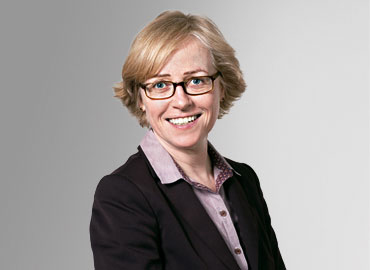This Website uses cookies to improve your visit on our website. More Info
B.A. INTERNATIONAL BUSINESS
The bachelor's degree is the first degree that students can obtain at a university, college, university of applied sciences or university of cooperative education. As a rule, the bachelor's degree program lasts 3 to 4 years or 6 to 8 semesters (one semester comprises approximately half a year). Successful completion results in the title of Bachelor, which is valuable as a basis for many lucrative professions in the subject area of the respective Bachelor's degree.
In order to acquire further qualifications or to intensify knowledge, students can follow up with a master's degree and subsequently a doctorate. In most cases, a master's degree follows in the same subject area in which the bachelor's degree was already successfully completed. It is possible to reorient oneself after the bachelor's degree and pursue a master's degree in another subject. This poses a greater challenge, as the basic knowledge from the bachelor's degree in the newly chosen subject must be made up.
The Bachelor's degree program has been standardized in Europe and thus made more internationally comparable. Accordingly, various opportunities open up for students to apply on an international level. Students who have already successfully completed a German Bachelor's degree thus have the same chances of starting a career in many other countries as they do in Germany or as local Bachelor's graduates. They also have the advantage of enriching their bachelor's degree with a subsequent master's or doctorate abroad.
Download info material
In our exclusive and non-binding information material, you will learn everything about:
In Germany, the prerequisite for a bachelor's degree is generally a university entrance qualification or a specialized baccalaureate. While the specialized baccalaureate entitles the holder to a bachelor's degree in the subject or a closely related subject in which the specialized baccalaureate was completed, the general high school diploma opens up the possibility of a bachelor's degree in all subjects offered. When applying for a Bachelor's degree, the so-called NC (numerus clausus) comes into play for some subjects. In this case, if the number of applicants exceeds the number of available study places, the average grade from the school leaving certificate is used for the allocation of study places.
Before starting, future students can choose between a one-subject Bachelor's program and a two-subject Bachelor's program. This depends primarily on the subject of study. Some subjects are only offered in the one-subject bachelor model so that students can fully concentrate on their competencies in that subject. This leads to the acquisition of a detailed knowledge of the subject matter at the end of the Bachelor's program.
In the two-subject bachelor's program, students gain a broader knowledge in several areas because two different subjects are studied. These can either be treated with the same intensity or with different intensities. In the second option, students choose one major and one, but sometimes several, minor subjects. These subjects do not necessarily have to be related, which brings great variety to the bachelor's program. The two-subject bachelor's degree is often offered with a view to teacher training or in the humanities or linguistics. As a rule, this model offers an advantage if no specific career choice is aimed for at the end of a bachelor's degree, such as becoming a lawyer after a law degree, but the options can go in many different directions, as after an English degree.
In the Bachelor's program, students take so-called modules each semester, which are equivalent to thematic units. Some are prescribed and are usually only offered at certain times. For example, a basic course, in which students get an overview of all subject areas of a study program, is beneficial at the beginning of the Bachelor's program. This is built upon in the following semesters. Other modules can be freely chosen by students and taken at different times in the Bachelor's program. Thus, the bachelor's program provides the opportunity for each student to become more familiar with one or more fields of study that can enrich the student's expertise and lead him or her to a possible further career choice. In addition, students can customize their bachelor's degree program according to their abilities and interests. Ultimately, each student has a personalized learning experience and graduates from the Bachelor's program with a unique career path and exclusive knowledge. From information-packed lectures to interactive seminars, the Bachelor's program offers different ways to absorb knowledge.
Students complete the Bachelor's Program with a Bachelor's degree, which is then called a "Bachelor of ...", after which the direction in which the subject studied is used. The following bachelor's degrees are available:
| Degree | Field of Study |
|---|---|
| Bachelor of Arts (B.A.) | This Bachelor's degree designation is awarded to graduates of the Bachelor's Program in Social Sciences, Language, Social and Cultural Studies. For example, in literary studies, philosophy, education, and sports science, students can earn a Bachelor of Arts degree. |
| Bachelor of Science (B.Sc.) | Graduates of the STEM subjects are awarded this title at the end of their Bachelor's Program. STEM subjects include the scientific fields of mathematics, engineering, computer science and natural sciences. In addition, graduates of the Bachelor's Program in the Humanities, such as Psychology, are awarded a Bachelor of Science title. |
| Bachelor of Engineering (B.Eng.) | This degree is awarded after a Bachelor's Program in engineering subjects. These include, for example, mechanical engineering, environmental engineering or food technology. |
| Bachelor of Education (B.Ed.) | Students earn this degree after completing a Bachelor's Program in teaching. To become a teacher, however, a successful master's degree and a traineeship must follow. |
| Bachelor of Laws (LL.B.) | The Bachelor's Program in Law leads to a Bachelor of Laws degree. With this bachelor title, graduates can enter professions such as business lawyer and legal advisor. For professions such as judge, notary and lawyer, further studies must follow. |
| Bachelor of Music (B.Mus.), Bachelor of Musical Arts (B.M.A.) and Bachelor of Fine Arts (B.F.A.) | For students with musical or artistic talents, different bachelor's degrees are offered for their respective chosen creative fields of study. These include fine arts such as sculpture (Bachelor of Fine Arts), musical subjects (Bachelor of Music), and musicology, where creativity is combined with marketing and management in the Bachelor's Program (Bachelor of Musical Arts). |
Note: Economics and engineering are exceptions, as students can pursue different degrees here. This results from the different majors that students have focused on during their Bachelor's Program. Business graduates can complete their Bachelor's Program with either a Bachelor of Arts or a Bachelor of Science degree. Engineering students can earn a Bachelor of Science or Bachelor of Engineering after successfully completing their Bachelor's Program.
At Munich Business School (MBS), students can take the Bachelor's degree program in International Business and thus successfully enter professional life or take one of the numerous Master's degree programs. The following key data are attractive about the Bachelor's Program at MBS:
German / English
6 Semesters + Bachelor Thesis
Summer and Winter Semester
Bachlor of Arts (B.A.)
30 weeks during the study
Bachelor International Business
2 Major projects during the study
Beyond the Bachelor's Program, Munich Business School offers many other attractive options, such as business-related Master's, MBA and DBA programs, as well as executive education programs. Students who enjoy sports and can imagine a career in this field can, for example, benefit from our sports management studies as part of the M.A. International Business.
MBS can also be of assistance prior to a Bachelor's Program. The Pre-Bachelor International Business course helps prospective students to optimally prepare for their Bachelor's Program. Included is a bridge course in Business Studies, which provides preliminary knowledge of Business Studies, and a boost in English and mathematics skills. Upon completion of this course, students can secure a place on our Bachelor's Program in International Business and begin their Bachelor's Program with confidence and competence.
The Bachelor's Thesis is considered the final exam for the Bachelor's Program and can usually only be started once certain goals have been achieved in the Bachelor's Program. Through the Bachelor's Thesis, students get the opportunity to independently apply and implement their learned techniques and contents from the Bachelor's Program. The aim of a bachelor thesis is to show that the future graduate is able to work independently in the chosen scientific field.
As a rule, the Bachelor's Thesis within the Bachelor's Program already begins with the choice of the research question. From conception to completion of the 20 to 60 page text, students can always seek advice or assistance from their supervisors. However, the writing and research are entirely up to the students. Supervisors are usually experts in the department in which the Bachelor's thesis is located and can thus provide optimal assistance when the need arises.
After the topic has been chosen, students must register the thesis. They then have 2-4 months of their Bachelor's Program to research and present their findings in the Bachelor's Thesis in the form of text and possibly other means, such as tables. In some subjects, students are also required to take an oral examination on the Bachelor's thesis they have written. This follows after the thesis has been handed in and read. Students must demonstrate how they approached their Bachelor's thesis and what results they arrived at in a presentation and during the subsequent question and answer session. If all this is successfully completed, students are awarded the Bachelor's degree at the end of their Bachelor's Program.

Choosing the right form of Bachelor's Program is an important decision. There are several educational institutes that offer this study option, and each has its own merits and different fields of study. Here are the different options at a glance:
University: They emphasize theoretical aspects of the Bachelor's Program and often offer research opportunities. The schedules are flexible and offer students a certain degree of freedom.
College: They usually have a fixed timetable with a stronger practical focus. Due to the smaller number of students, there is more intensive supervision and closer cohesion among the students.
Alternative forms of study: There are other options such as dual study, which combines theory and practice, distance learning, which allows flexible scheduling, and part-time study, which is suitable for working professionals or students with other commitments.
Each option has its own advantages and is suitable for different needs. The decision depends on personal preferences, professional goals and individual life circumstances.
First of all, graduates should ask themselves what their goals are after the Bachelor's Program and how they envision their future. Can graduates already start a job with their Bachelor's Program degree, or do many professions in the field require further study? The following options are open:
If graduates want to enter the world of work, many universities and colleges offer counseling opportunities. Lectures are often given on the opportunities available to Bachelor's Program graduates. Depending on the subject studied and the performance in the Bachelor's Program, graduates have different career paths open to them. In the Bachelor's Program, students learn the basic skills to work scientifically, which offers advantages not only in professional fields related to the subject. In addition, the Bachelor's degree is internationally recognized and thus also facilitates a career start abroad.
A master's degree with possible doctorate could be the right choice for graduates seeking further academic education. It builds on the Bachelor's Program and allows for a more in-depth study of the subject. New skills can also be acquired through a related or different master's degree program, even abroad. A master's degree can also be taken after a few years of work experience to advance in one's career or to secure future advantages. The decision does not have to be made immediately, graduates have time to orient themselves.
A successfully completed Bachelor's Program opens up numerous advantages and prospects. Not only does it offer a wide range of career opportunities, it also opens up access to attractive and sought-after professional fields that would be unattainable without this degree. Compared to an apprenticeship, the higher educational level of a Bachelor's Program confers better qualifications and opens up expanded opportunities in the job market. In addition, a completed Bachelor's Program is usually accompanied by a higher average salary, which graduates earn for the services they provide.
✓ Unification of the Bachelor's Program: Since the Bachelor's Program is standardized in Europe and internationally comparable, the degree is recognized internationally. With a German bachelor's degree, students can, for example, fulfill their dream of emigrating without having to worry about their career prospects. In addition, most bachelor's degree programs promote students' English language skills. Many subjects are already taught entirely in English in the Bachelor's Program. However, the majority of Bachelor's Program courses include at least some lectures by guest lecturers from abroad or require students to read and understand English texts.
✓ Basis for Master's Degree: A Bachelor's degree provides the prospect of further educational opportunities after the Bachelor's Program. A master's degree followed by a doctorate provides further advantages for the student's successful future. In addition, this is usually a prerequisite for academic professions and for research in the field of study.
✓ Study Abroad: Before completing the Bachelor's Program, students can also take the opportunity to spend time abroad. Semesters abroad offer different perspectives on the field of study and the application of study content after the Bachelor's Program. But time abroad can also be enriching for the development of a broader worldview, as new cultural impressions broaden horizons and bring fresh ideas. These new experiences can be beneficial both for the professional future, through improved foreign language skills, for example, and for private development.
✓ Acquisition of new Knowledge: Many students see the Bachelor's Program as an opportunity to gain more education. Learning can be very exciting, and new knowledge can always give rise to new thought-provoking ideas and character development that can take students beyond the Bachelor's Program.
The Munich Business School in Numbers
A bachelor's degree is the first degree you can earn at a university, college, university of applied sciences or university of cooperative education. As a rule, the Bachelor's Program lasts 3 to 4 years and you receive a Bachelor's degree at the end, which qualifies you for jobs in the field of your Bachelor's Program.
No, a high school diploma or a specialized baccalaureate is required in most cases to start a Bachelor's Program. The high school diploma is the highest school degree you can get in Germany. It allows you to start an apprenticeship for many well-known professions and it is considered an entrance requirement for a Bachelor's Program, which qualifies you for many other professions. The high school diploma is awarded when you successfully pass your final exams at school after 12 or 13 grades. You complete a Bachelor's Program at a university, university of cooperative education, university of applied sciences or university of applied sciences. The Bachelor's Program usually takes 3 to 4 years.
Both are degrees that you can obtain at a university, college, University of Applied Sciences or university of cooperative education.
It all depends on what subject you choose, which in turn depends on what you are interested in, what your goals are, and what you are good at. Every Bachelor's Program starts with the basic knowledge you should know and be able to do for your field. This includes insights into all parts of your field of study. Later in the Bachelor's Program, you will have the opportunity to deepen your knowledge in at least one subject area and thus focus your Bachelor's Program there.
Our Bachelor's and Master's Degree Programs will provide you with relevant knowledge and skills you need for a successful career.


